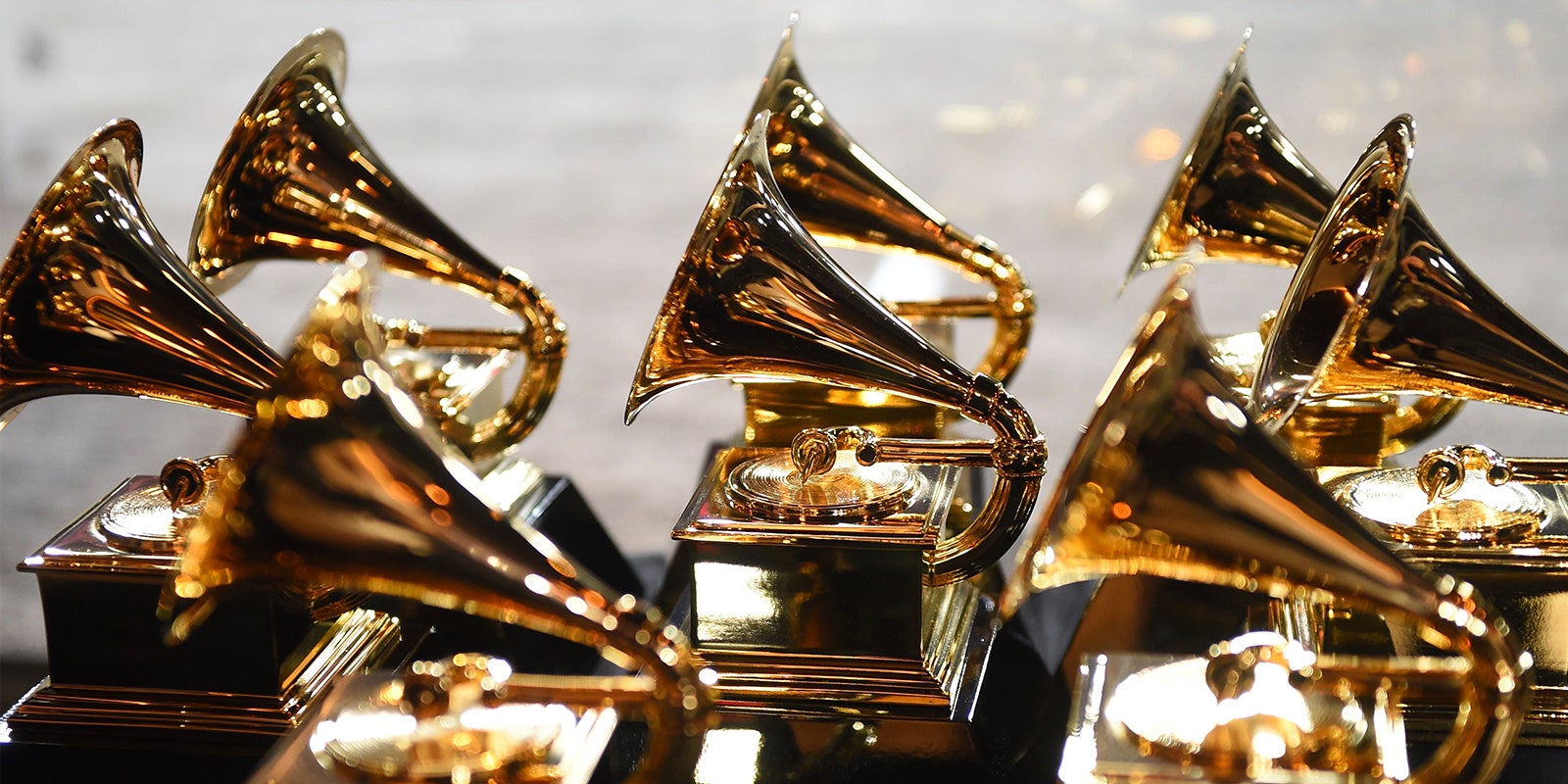
The 63rd Annual Grammy Awards take place this Sunday, March 14th and, once again, discourse surrounding the ceremony has been rife. As with every year, the nominations sparked widespread discussion across the music industry and social media with what seemed like everyone sharing their two cents on who they felt did or didn’t deserve their nominations.
At the forefront of the ceremony’s discourse this year: The Weeknd. The “Blinding Lights ” singer was snubbed in every single category. It didn’t take long before the news of one of 2020’s biggest stars receiving zero nominations sent shockwaves across both the music industry and the globe. He was the projected frontrunner to win in the major categories by many, and after the stellar year in music he’s coming off of (and still riding), it simply didn’t make sense that his name did not appear once in any of the nominations.
.@TheWeeknd shockingly received zero nominations at the 2021 #GRAMMYs. pic.twitter.com/dZRgulFuoO
— Pop Crave (@PopCrave) November 24, 2020
The Weeknd himself called the snub “an attack” in an interview with Billboard, though later went on to say that he no longer cares and that his three previous Grammy wins mean nothing to him. The “Blinding Lights” singer has said that he will now boycott the Grammys going forward, not allowing his label (XO Records) to submit for the awards. This is due to the secret committees which review the initial nomination choices.
The Weeknd tells The New York Times that he will boycott the #Grammys moving forward following his 2021 nomination snub:
“Because of the secret committees, I will no longer allow my label to submit my music to the Grammys,” pic.twitter.com/Y8h1LvuKeE
— Pop Crave (@PopCrave) March 11, 2021
Each year sees a plethora of artists calling out the Grammys and, obviously, this year has been no exception. On Tuesday, March 9th, Zayn Malik took to Twitter to demand transparency from the Recording Academy. He claimed that “unless you shake hands and send gifts, there’s no nomination considerations.” His tweet, he says, was not personal but “about the need for inclusion and the lack of transparency of the nomination process and the space that creates and allows favoritism, racism, and networking politics to influence the voting process.”
Zayn elaborates on his #Grammys tweet:
"[it] was about the need for inclusion and the lack of transparency of the nomination process and the space that creates and allows favoritism, racism, and networking politics to influence the voting process" pic.twitter.com/S67UNZcES3
— Pop Crave (@PopCrave) March 10, 2021
Conversation on Twitter quickly resumed its annual commentary on the noms and people began to question the legitimacy and value of the once renowned gramophone trophy. This is not necessarily a new course for discussion, but it’s definitely one that has felt more prevalent in recent years — though maybe instead of asking “Have the Grammys lost their meaning?”, we should be questioning whether they had any to begin with.
“Snubs” are not a new phenomena for the Recording Academy, with some of the most notable dating back to the 1980s (The Police’s “Every Breath You Take” winning Song of the Year over Michael Jackson’s “Beat It” and “Billie Jean” in 1984 — though, this could be due to split voting), the 1990s (Mariah Carey’s ‘Daydream’ not winning a single one of its six nominations in 1996), and 2000s (Kanye West losing Best New Artist in 2005). Back in November, we asked our followers what felt like a Grammy-winning album, but isn’t — and with over 18,000 responses, it seems apparent that most people are aware of at least one Grammy snub. A cause for concern, maybe?
What FEELS like a Grammy Award-winning album, but isn’t?
— Pop Crave (@PopCrave) November 25, 2020
Accusations of racial bias within the Recording Academy are decades-old and continue to dominate the conversation surrounding the Grammys. The ceremony has a history of not awarding Black artists and artists of color nearly as much in the major categories as they do with their white counterparts. In the ceremony’s 62-year history, only 10 Black artists have won Album of the Year, the most recent being Herbie Hancock in 2008 — with his album of Joni Mitchell covers. A Black woman has not won the award since Ms. Lauryn Hill in 1999 for ‘The Miseducation of Lauryn Hill’, despite Black women continually pushing boundaries and creating some of the most captivating music in history. Just four years ago, Beyoncé lost her third Album of the Year nomination (the groundbreaking, universally acclaimed ‘Lemonade’) to a white artist. Even Adele, the winner of the trophy that year, said that Beyoncé should have taken it home — dedicating half of her acceptance speech to “the artist of [her] life.” Kendrick Lamar has been snubbed of this award on multiple occasions, too. The rapper has not missed the mark with any of his projects, with each one being met with universal critical acclaim as well as commercial success and cultural impact. Even with records such as 2015’s ‘To Pimp A Butterfly’ and 2017’s ‘DAMN.’ under his belt, he has yet to have been honoured with one of music’s most prestigious awards. It has become undeniably apparent that the voting committees favor white artists in the big categories.
Even powerhouses like Beyoncé, who herself has 24 Grammys to her name, can still demonstrate the racial bias that exists within the academy – the vast majority of her wins (20) come from genre categories, like R&B and Urban Contemporary (one from Pop), which have been argued to be racialized as a means of “appeasing” artists of color. As John Vilanova said in his 2017 piece for the Los Angeles Times, being nominated in the major categories “should be perceived as victory enough for artists of color, even if they go on to lose to white artists” — which, in the majority of cases, they do.
The Grammys have also been called out for their representation of women in their awards — just three years ago, former Recording Academy President Neil Portnow said that women who want to be a part of the industry need to “step up” in response to only one woman taking home a major award at that year’s ceremony. (This is despite the fact that Lorde had released her widely acclaimed sophomore album, ‘Melodrama’, SZA had broken through into the mainstream with ‘Ctrl,’ and Kesha had made her triumphant comeback with ‘Rainbow’ less than a year earlier, to mention but a few of women’s incredible accomplishments in the industry in just the year prior). To see someone possessing those attitudes in charge of the Recording Academy undoubtedly raises concerns over its legitimacy and leads to yet more questions over the value of its awards.
Despite this, the Recording Academy maintains that it works to ensure diversity and inclusion and stated that “the invitations to participate in committees did meet gender parity goals” for the 62nd Annual Ceremony (2020). 44% of the nomination review committees was female, and 46% was People of Colour. While this does demonstrate that the Academy appears to be working forward towards better diversity and inclusion, and tackling its issues with race and gender representation, it’s clear that there is still work to do by taking a look at who the trophies have been given to, both recently and historically.

The Grammys have also been accused of corruption through favors — artists themselves have come forward and said that if you don’t “play the game,” you won’t get nominated. Back in 2019, Ariana Grande alluded to the corruption inside the Academy after producer Ken Ehrlich claimed the singer felt it was “too late to pull something together” following their disagreement over her performance at the ceremony.
i offered 3 different songs. it’s about collaboration. it’s about feeling supported. it’s about art and honesty. not politics. not doing favors or playing games. it’s just a game y’all.. and i’m sorry but that’s not what music is to me.
— Ariana Grande (@ArianaGrande) February 7, 2019
Former CEO of the Recording Academy, Deborah Dugan, who was fired from the Academy, accused the Grammys of being corrupt and claimed she had evidence of vote rigging. Halsey has also come forward and said that getting a nomination is not always necessarily about the quality of the music, calling The Grammys “an elusive process.”
Halsey says getting a Grammy nomination is more about who you know rather than the quality of your music:
“It’s about committing to exclusive TV performances and making sure you help the Academy make their millions in advertising on the night of the show.” pic.twitter.com/CrrWrDfCli
— Pop Crave (@PopCrave) November 29, 2020
With so many accusations against the legitimacy of the Grammys, it becomes hard to see what significance they hold. Continuous snubs year upon year, paired with countless accusations of corruption on a variety of fronts, definitely lowers the pedestal on which we place “music’s biggest night” and raises questions on the value we’ve been convinced it possesses. Hint: the less importance we allow the Grammys to have, the less importance they can have.
In general, award shows themselves can be argued to be a flawed concept due to the subjectivity of music and art. There is no definite way of telling which song, album or music video is best, so, since people will never be able to come to a unanimous decision on which is the deserved winner, there can never be a scenario that will please everyone. This will ultimately always lead to “snubs” and artists, labels and fans being upset at the outcomes of the ceremony — eventually leading to accusations of corruption (though this does not discredit these accusations).
The Grammys may feel as though they have less significance and value than ever right now, but it’s important to remember that these problems have always existed within the Academy and so, while we may notice and question it more now, the awards could well have never held that much importance.
Either way, there’s no denying that it’s fun to watch the show and root for our favorite artists and songs, even with the knowledge that it’s meaningless — just don’t take the results too seriously, you know who your winners are.
What do you think? Have the Grammys lost their value? Did they ever have any to begin with? Let us know on Twitter: @PopCrave.





